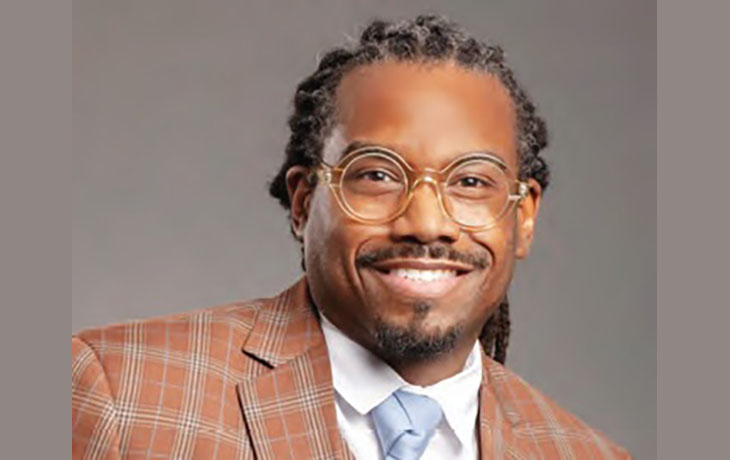by Taalib Saber
For New Pittsburgh Courier
As Black History Month reminds us of our legacy of resilience and economic power, recent federal rollbacks of Diversity, Equity, and Inclusion (DEI) programs have sent shockwaves through corporate America. While these policy changes may feel like a setback, they present a unique opportunity for Black entrepreneurs to double down on self-sufficiency and community-driven business growth.

Taalib Saber
A Wake-Up Call for Black Business Owners
DEI initiatives have helped Black professionals access corporate contracts and funding opportunities, but many provided symbolic representation without tangible economic transformation. With these policies being dismantled, it’s time for Black business owners to rely less on institutional diversity programs and more on collaborative, community-driven economic strategies.
This isn’t a time for despair. It’s a time to reimagine economic power. When systems exclude us, we innovate. When doors close, we build new ones. From the Freedmen’s Bureau to Black Wall Street, our ancestors created success despite systemic opposition.
Turning Setbacks into Power Plays
Rather than seeing DEI rollbacks as obstacles, Black entrepreneurs should view them as catalysts for collective wealth-building. Today’s success stories prove this approach works.
Rihanna’s Fenty Beauty revolutionized the cosmetics industry by creating products for all skin tones when mainstream brands wouldn’t. By focusing first on underserved Black and brown consumers, Fenty Beauty generated $100 million in sales in its first 40 days and has grown into a billion-dollar enterprise that forced the entire beauty industry to become more inclusive.
Calendly, founded by Nigerian-American Tope Awotona, became a billion-dollar scheduling platform by solving a universal problem. Despite initial struggles to secure venture funding, Awotona bootstrapped his company until its value was undeniable, ultimately raising $350 million and reaching a $3 billion valuation.
The Fifteen Percent Pledge, founded by Aurora James, demonstrates the power of intentional economic redirection. By persuading major retailers like Sephora and Macy’s to dedicate 15 percent of shelf space to Black-owned brands, the initiative has shifted over $10 billion to Black businesses since 2020.
How Black Businesses Can Thrive
Leverage Group Economics: Focus on Business-to-Business (B2B) relationships within the community through strategic partnerships and shared marketing efforts. Black entrepreneurs can drive revenue by prioritizing Black-owned vendors and service providers.
Explore Alternative Capital: While government-backed DEI funding may disappear, access capital through angel investors, venture capitalists focused on minority-owned businesses, and crowdfunding. Organizations like the Black Angel Tech Fund and 1863 Ventures are specifically supporting Black entrepreneurs.
- Master Digital Marketing: Without DEI mandates, securing contracts will be more competitive. A strong digital presence, SEO-optimized websites, social media dominance, and powerful branding are non-negotiable.
- Own Your Intellectual Property: In entertainment, sports, and entrepreneurship, prioritize ownership through trademarks, copyrights, and business structures that prevent exploitation while ensuring generational wealth.
- Build Industry-Specific Networks: Creating Black-led professional networks in industries like law, entertainment, and finance will ensure access to opportunities that corporate America may no longer prioritize.
Contemporary Success Through Community Power
Blavity Inc., founded by Morgan DeBaun, has built a digital media empire reaching over 30 million millennials monthly. By focusing on serving Black audiences and creators first, Blavity has expanded to include multiple brands and hosts AfroTech, the largest Black tech conference in America.
Greenwood Bank, co-founded by Ryan Glover, rapper Killer Mike, and former Atlanta Mayor Andrew Young, raised $40 million in funding before even opening its doors. Named after the prosperous “Black Wall Street” district, this digital banking platform specifically serves Black and Latino communities by reinvesting in minority businesses.
Pattern Beauty by Tracee Ellis Ross demonstrates the power of serving community needs first. By creating hair products specifically designed for Black women, the brand became profitable within days of launching and secured distribution at major retailers nationwide.
The Black Wealth Renaissance
Black history has always been marked by resilience. When access is denied, we create our own tables. By focusing on economic empowerment, ownership, and strategic partnerships within our community, we can build an ecosystem that thrives beyond political shifts.
This isn’t about segregation. It’s about elevation. It’s about ensuring Black businesses aren’t dependent on temporary policies but rooted in sustainable strategies that allow prosperity regardless of who’s in office.
We have always been our best investment. When we bet on ourselves, we win. When we invest in each other, we grow. When we circulate our dollars within our communities, we build lasting wealth.
Action Steps for Black Entrepreneurs
Identify and partner with Black-owned suppliers and vendors. Ensure your business is properly structured to protect assets. Develop a strong online brand presence. Explore funding options that prioritize Black entrepreneurs. Join or form industry-specific Black business networks. Support Black-owned financial institutions. Advocate for policies that benefit Black entrepreneurs.
The future is ours. Our history proves that we thrive when we work together. The attack on DEI is not the end of opportunity. It’s the beginning of a new Black economic renaissance. If we seize this moment, we won’t just survive. We will thrive!
(Taalib Saber is an attorney and owner of The Saber Firm)